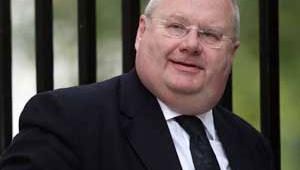The Cabinet secretary believes that mandarins’ crisis management abilities will mitigate the effects of the recession on the civil service. But his optimism is contradicted by Whitehall’s own performance indicators
Sir Gus O’Donnell, head of the civil service, recently gave a speech at the Royal Society of Arts about how well the mandarins of Whitehall could be expected to cope in the present financial and economic crisis.
O’Donnell’s answer was, perhaps unsurprisingly, that they would do rather well actually. From organising the G20 summit in short order through to coping with the massive increase in jobseekers, O’Donnell felt civil servants were ‘well placed’.
To the unbiased observer, his confidence might seem just a bit misplaced. O’Donnell put great emphasis on the importance of leadership — but one of the first tenets of successful leadership is being open and honest about failures and weaknesses as well as strengths and successes. There was plenty of boasting about the latter in O’Donnell’s speech, and precious little about the former — where there is quite a lot to say.
We will leave aside for the moment the litany of disasters and mishaps that have plagued the civil service in recent years — Rural Payments Agency delays; Child Support Agency arrears; tax credit overpayments; lost personal data; disastrous NHS IT contracts… the list goes on. And we are talking here of billions of pounds of taxpayers’ money that have been wasted, not to mention poor service in the areas concerned. No, we’ll leave these out of the reckoning for now, and concentrate on what Whitehall says about itself when it comes to performing, or not.
The longest running form of reporting on Whitehall performance is, of course, the Public Service Agreements, introduced in 1998 as an add-on to the first Comprehensive Spending Review. Since their introduction, we have had five rounds of PSAs and the results of Whitehall departments can be measured against these self-imposed targets.
The National Audit Office recently ‘scored’ departments’ PSA performance according to their own 2008 annual reports, and the results were pretty dire.
The NAO gave departments a percentage score as to how far they had met their PSAs. The average across all of them was only 45% — less than half of their targets. Only two departments — the Crown Prosecution Service and, surprisingly, the Home Office — scored 100% and five departments scored less than 25%. None of this featured in O’Donnell’s speech.
The second big rating exercise for government departments has been the Departmental Capability Reviews, initiated in 2005 and now in their second round. When DCRs were first announced, they seemed very much like Whitehall scrutinising itself. But a strong private sector involvement meant that this was not necessarily the case.
The DCR results have turned out to be rather brutal. The NAO has used a ‘star rating’ system, in which four is the top score and zero the worst. In the first round, no government department scored even a three-star average across the ten elements of capability. The average across the 17 Whitehall departments was only 2.1 — like the PSAs, only about halfway to excellence.
A curious thing happens when you start to compare these two sets of results. In its January report, the NAO measured the correlation between each department’s capability in the areas of leadership, delivery and strategy (as assessed by DCRs) and its actual results. It found there was virtually no relationship between the two.
In the area of delivery, there was a —0.02 correlation (with +1 being a strong positive correlation and —1 being a strong negative correlation). Our own calculations showed that, for leadership, there was a fairly strong negative correlation of —0.44 and for strategy a weak negative correlation of —0.13. Overall, the correlation between PSA and DCR scores was —0.35.
In summary, according to Whitehall’s own principal measures of its own performance, it is doing a mediocre job at best, and its systems seem to be perverse in so far as the better the ‘capability’, the worse the actual performance.
A thoughtful, contemplative leader of the civil service might be expected to reflect on some of this doubt and uncertainty. Paradoxically, O’Donnell’s prognosis that Whitehall might turn out to do well in a crisis may be more accurate than the above would suggest. Whitehall’s mythology about itself is all rooted in crisis and emergency management — the biggest example of which was World War II and its aftermath.
There is nothing that gets mandarins’ blood racing like a good old-fashioned national emergency. No doubt the G20 summit will be well organised. But the question that has dogged Whitehall for the past 20 years or more is — who’ll be minding the shop while they are off playing at saving the world?
Colin Talbot is professor of public policy and management and director of the Herbert Simon Institute at the University of Manchester










